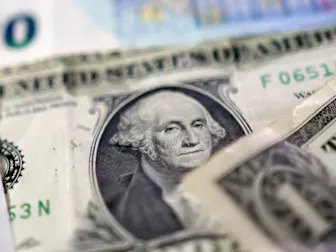
Dollar drops as traders eye Trump tax bill, G7 currency talks
By Kevin Buckland
TOKYO (Reuters) -The U.S. dollar fell on Wednesday, extending a two-day slide against major peers, as President Donald Trump failed to convince Republican holdouts to back his sweeping tax bill.
Traders were also wary of U.S. officials potentially angling for a weaker dollar at Group of Seven finance minister meetings currently underway in Canada.
Developments in Trump's global tariff war, which have swung currencies wildly in recent months, have slowed considerably this week, even as the clock ticks down to the end of 90-day tariff respites for U.S. trade partners in the absence of new trade deals.
While markets remain optimistic that the White House is eager to get trade flowing again on a sustained basis, talks with close allies Tokyo and Seoul appear to have lost momentum.
All this has combined to keep the dollar under pressure and U.S. Treasury yields rising, as the "sell America" theme continues to inform investment decisions, if in a less dramatic fashion than earlier this month.
"We do not consider the USD - and U.S. assets generally - are at the start of a 'death spiral'," Commonwealth Bank of Australia analysts wrote in a note.
"However, we forecast the USD to re‑weaken in 2026 once the tariff uncertainty fades and lower interest rates support a recovery in the world economy," they said. "Additionally, we expect large money managers to allocate less capital to USD assets over time."
A Moody's downgrade of the U.S. sovereign debt rating on Friday may have only had a limited impact on markets, but it has added to the narrative of less faith in U.S. assets as safe havens.
Trump's tax bill would add $3 trillion to $5 trillion to the country's debt, according to nonpartisan analysts. Ballooning fiscal debt, trade frictions, and weakened confidence have weighed on U.S. assets.
"Tariff rates are now lower, but not low, and the same can be said about recession risks in the U.S.," Goldman Sachs analysts wrote in a research note.
"But as recession risks have compressed, risks from higher rates are growing," they said. "The U.S. still faces the worst growth-inflation mix of the major economies, and as the fiscal bill makes its way through Congress, eroding U.S. exceptionalism is proving - literally - costly at a time of large funding needs."
"This leaves wider paths to a weaker dollar and a steeper U.S. Treasury curve."
The dollar declined 0.55% to 143.715 yen as of 0520 GMT, and slipped 0.67% to 0.8222 Swiss franc.